This is how long Covid affected my professional life
Oct 20, 2020
5 mins
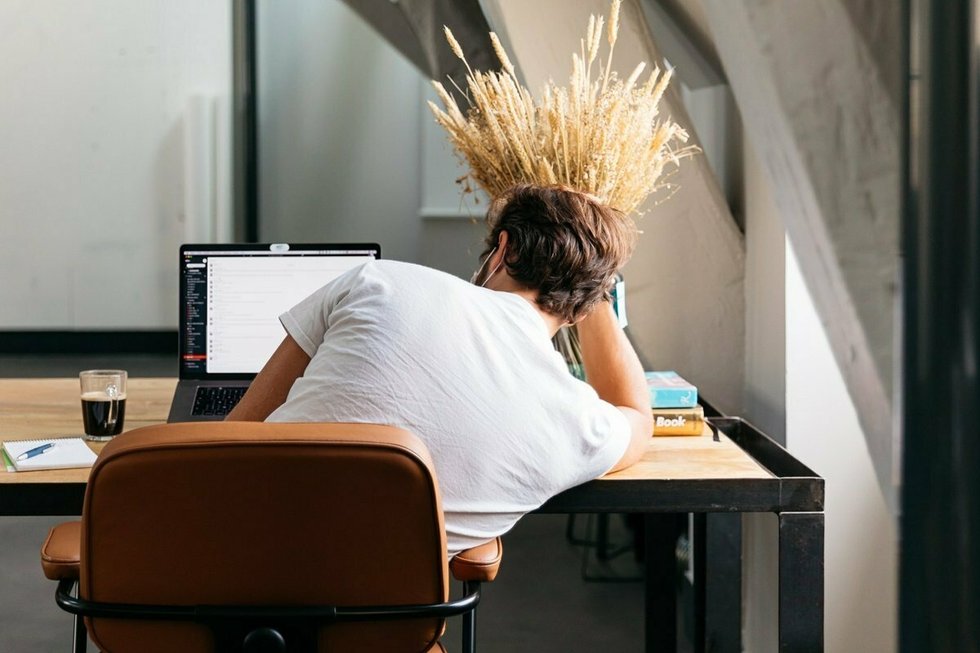

Journalist
More than half a million people who have been diagnosed with COVID worldwide since the beginning of the pandemic shall have to experience what is called long Covid. These people—known as “long haulers”—caught Covid-19 and were left with unusual symptoms that lasted for three months or more. Breathlessness, fatigue, and “brain fog” are among the medical issues that those with long Covid live daily, with a devastating impact on their health, social lives, and careers.
Kate Hebden-Brittain is one of these people. When she developed Covid-19 symptoms in March she wasn’t overly concerned. “I thought I was just under the weather,” she said. “I just felt a bit run-down.” Weeks later, other symptoms had developed. “I had terrible palpitations. In the morning, I had terrible vertigo. The whole room was going around and around, I felt really nauseous. And I could hardly get out of bed. It took me about four hours in the morning to just try and get up, slowly have a shower, force myself to eat.”
“If it takes me four hours to get out of bed, how can I work?”
In normal circumstances, Hebden-Brittain works as a freelance documentary producer. An average day might involve setting up shoots, meeting directors and contributors, finding locations, and filming onsite for hours on end. The workload can be heavy, and days can be long. “It is an intense pace,” she said. “I absolutely love it. I’ve been doing it for 17 years now.” But her debilitating symptoms left her facing difficult questions about her professional future. She remembers wondering, “If it takes me four hours just to get out of the bed, how on earth can I work?”
“In my heart, I knew I couldn’t accept the contract”
In March, when she became ill, her industry was thrown into chaos. Although Hebden-Brittain wasn’t able to work throughout March and April for health reasons, she says, “There wasn’t actually much work in TV anyway.” But, with her experience, there were some offers coming her way, and towards the end of April, she felt well enough to consider accepting a new work contract. Then, out of the blue, her symptoms returned, worse than before.
“The employer said, ‘We’d love you to do this job, can you do it?’ A day or two before I’d have said ‘yes’.” Instead, she turned it down. “In my heart, it was a lucky escape because I couldn’t work,” she said.
A new study from the National Institute of Health Research has found that long Covid symptoms are wide-ranging and can fluctuate. “A common theme is that symptoms arise in one physiological system then abate only for symptoms to arise in a different system” according to the report. This is certainly the case for Hebden-Brittain. Her symptoms come in unpredictable 10-day waves, leaving her unsure when they might reemerge.
“Has everything moved on? Am I out of the loop?”
As a freelancer, this put Hebden-Brittain in a difficult position. She was unable to commit to new projects because of the uncertainty of living with long Covid, which left her wondering if the industry would move on without her, and if contracts would still be there when she was able to return to work. This worried her greatly. “I’m ill and I’ve been out of it,” she said. “People have moved on, everything’s moved on, I’m out of the loop. And I’ve not got a huge amount of stamina to go back into that, and sell myself and be proactive. And will people remember you?”
On the plus side, she did not have an employer pressuring her to return to work and, financially, Hebden-Brittain acknowledges that she was fortunate to be able to get government support, especially as she knows many other freelancers who “fell through the gaps”. This freedom allowed her to make the decision to take time off work and focus fully on her health and her future.
“This has forced me to stop and to reflect”
Initially, managing her symptoms was “a full-time job”. But over time, “it has actually allowed me to take that time out without the pressure of an employer. I’ve had a really, really, really full-on, high-octane career, traveling the world, meeting incredible people. But it has been relentless and this, in a way, has almost forced me to stop and reflect.”
Hebden-Brittain decided early on that she wanted to go back to work, even though a return to her former job was clearly no longer realistic. “You have to put all of yourself into it,” she said. “I couldn’t consider jumping on an airplane or going on a shoot.” Instead, she started to think about how she might reintroduce work, alongside the reality of living with long Covid.
First, she began planning a documentary about long Covid on days when she felt able. She also began creating artwork, and getting commissions. Hebden-Brittain has always loved art and describes this unexpected turn in her professional life as “fulfilling a dream that I had 20 years ago. I’m in the process of setting up a little art business, which I’m hoping I can weave in and out of.”
By September, six months into her illness, the waves of symptoms had begun to lessen and she felt well enough to apply for a role in TV as an edit producer—a job-share she could do from home, with part-time, flexible hours.
“I told the interviewer I’d been really ill… and got the job”
She went into the job interview wanting to be open about her health if she was asked, but in the end the topic came up naturally. “There is a tendency in TV to have to say that you’ve got loads of stamina, you’re a fighter and you’ve worked huge amounts in lockdown, and it’s been this great time,” she said. However, her interviewer began their meeting by talking about the lockdown and the difficulties she had experienced herself. “It felt a comfortable environment to say, actually, it’s been really difficult because I’ve not been able to work at all, because I’ve been really ill,” she said. Her interviewer was supportive, and Hebden-Brittain got the job.
Ironically, her ability to work in TV again is partially thanks to the effects of the health pandemic that took her out of the workforce in the first place. “Television has had to adapt to the pandemic and to Covid,” she said. “A lot of TV people are working from home, which I will be doing. Hopefully, it actually supports my ability to get back into the workplace.”
“Excitement and trepidation”
Now, Hebden-Brittain is “really excited” about going back to work in a field she loves and focusing on her burgeoning art business. However, “I would say it is tinged with trepidation, and nerves as well, because of the unpredictability of the illness and because I’m not 100% yet,” she said.
“Some days I can feel okay and do more. Other days, I can’t, which you can’t predict and you don’t know when it’s going to happen. And the waves do keep coming, albeit not as badly.
“I just hope I’ll be able to manage it and enjoy it.”
Photo: Welcome to the Jungle
Follow Welcome to the Jungle on Facebook, LinkedIn, and Instagram, and subscribe to our newsletter to get our latest articles every day!

More inspiration: Physical health
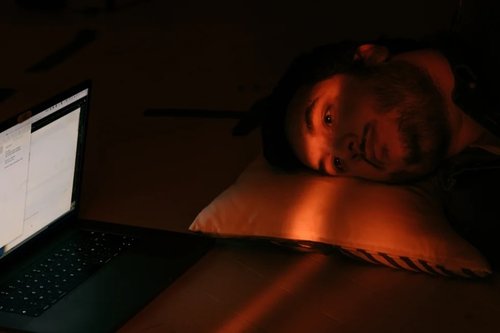
Navigating your career while managing chronic illness
Struggling to juggle work and chronic illness? Learn how to create a supportive career path and find solutions.
Dec 24, 2024
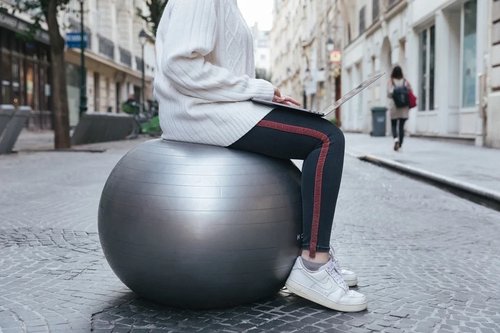
The best equipment to help you get exercise without leaving your desk
A sedentary lifestyle can lead to serious health problems. So, how can you stay fit while still at your desk?
Nov 09, 2023
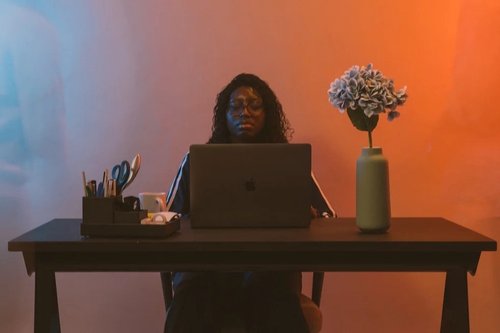
Glued to your desk all day? Try these discreet exercises
Laptop-based work can mean freedom and comfort, but a sedentary lifestyle also brings a host of health risks...
Oct 18, 2023
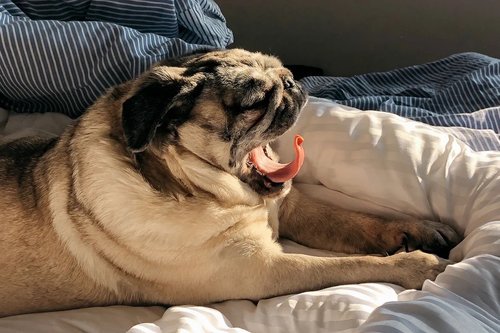
How the world of work is getting better for veterinarians
Though typically not considered a dangerous profession, veterinary services rank among the highest industries for non-fatal injuries
Oct 04, 2023
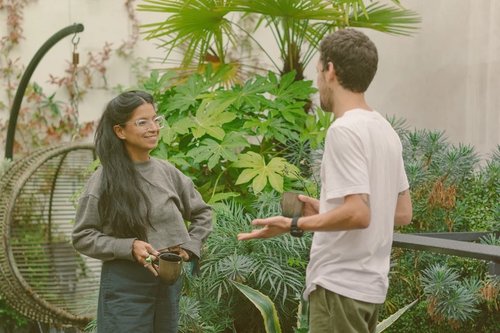
The dynamic benefits of walking meetings
As our jobs become more flexible, workers are finding new ways to improve their mental and physical health
Oct 03, 2023
The newsletter that does the job
Want to keep up with the latest articles? Twice a week you can receive stories, jobs, and tips in your inbox.

Looking for your next job?
Over 200,000 people have found a job with Welcome to the Jungle.
Explore jobs